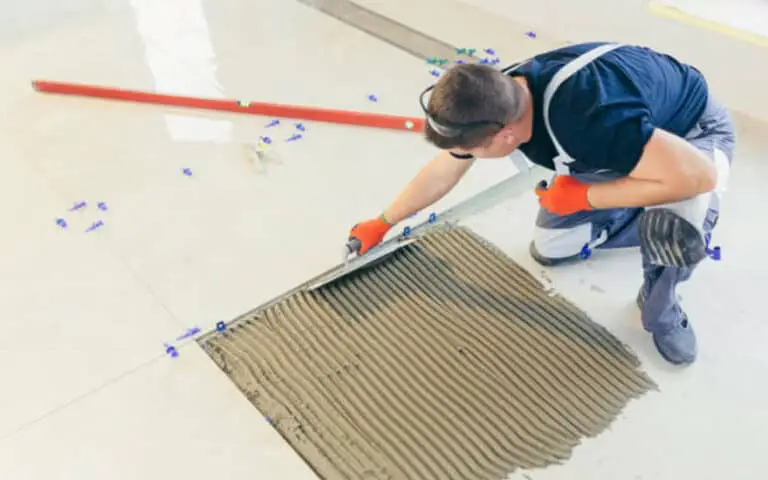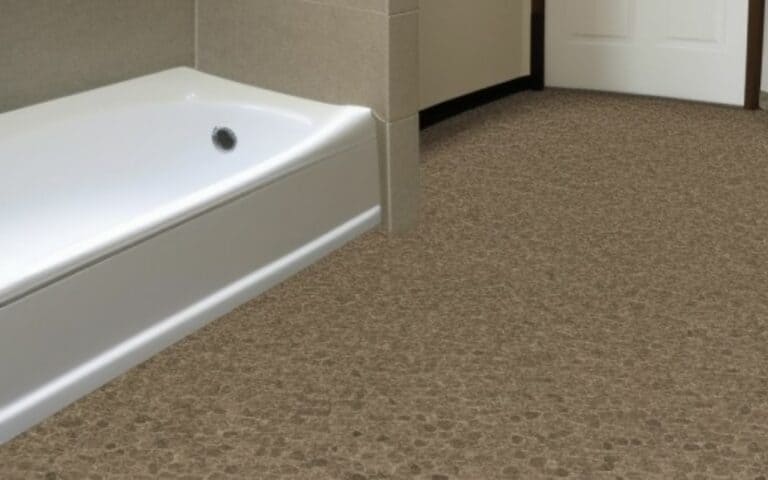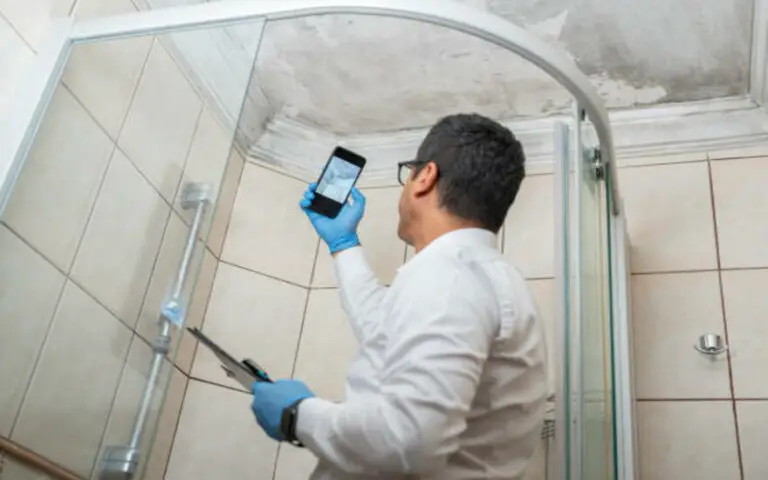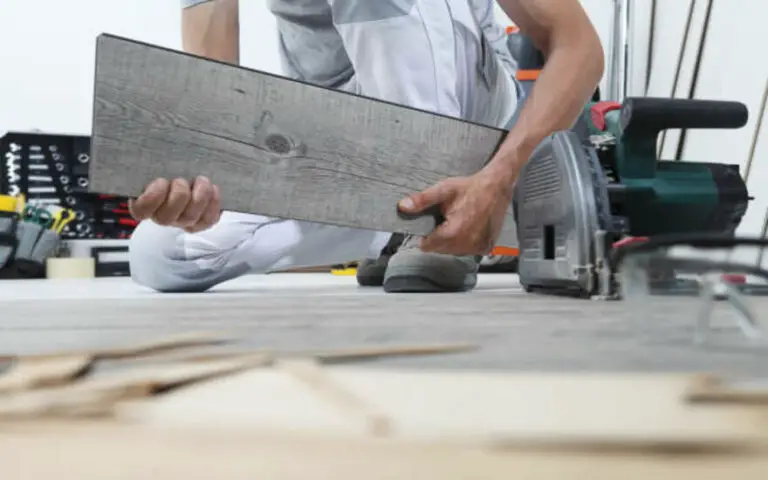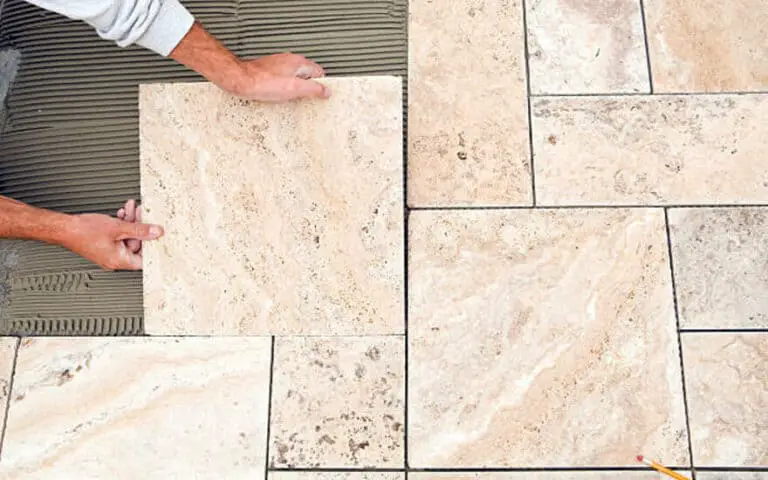In this blog post, I’ll explore the pros and cons of each option so you can make an informed decision.

11 Advantages of laminate flooring for Kitchen
When it comes to kitchen flooring, you have many options. One of the most popular choices is laminate flooring, which offers a variety of advantages. From its durability and sturdiness to its ease of installation and maintenance, laminate flooring can be an excellent choice for your kitchen. It is resistant to moisture and scratches and comes in various colors and designs.
It is also cost-effective, hygienic, and fire-resistant and provides environmental benefits. All of these features make laminate flooring an ideal choice for your kitchen.
1. Durability and Sturdiness
Regarding durability and sturdiness, laminate flooring is a great option for the kitchen. It is much more resistant to wear and tear than vinyl floors, making it perfect for high-traffic areas like the kitchen.
It also has rigid core construction, making it more dimensionally stable and sturdy, which means it can withstand heavy furniture and everyday wear and tear. Laminate flooring is also a great choice if you want an option that will last for years.
2. Easy installation
Installing laminate flooring is a great DIY project that any homeowner can tackle. Laminate planks are easier to install than sheet vinyl, as they don’t need to be nailed, stapled, or glued down. Plus, it’s a floating floor, so you don’t have to worry about getting the subfloor perfectly leveled before installation.
All you need is basic tools and the right technique for measuring and cutting the planks, and you can have beautiful new flooring in your kitchen in no time!
3. Resistance to Moisture
When it comes to resisting moisture, both laminate and vinyl flooring have their advantages. Laminate flooring is made with HDF core, inherently moisture resistant for areas with higher humidity levels.
On the other hand, vinyl flooring is completely waterproof, making it the ideal choice for any area prone to spills and standing liquid. With either material, you can be sure your kitchen floor will remain protected from moisture and water damage.
4. Variety of Designs and Colors
I love that there’s such a wide variety of designs and colors when it comes to laminate flooring for the kitchen. From classic wood grain to modern marble and stone styles, there are so many options to choose from. You can also find laminate flooring in various colors, ranging from natural wood hues to vibrant shades of blue, green, and red.
With such an array of choices, you’re sure to find something that will perfectly match your kitchen’s decor. Plus, since laminate is so easy to install, you can easily switch out the design or color whenever you want a new look.
5. Ease of Cleaning and Maintenance
When it comes to cleaning and maintenance, laminate floors are super easy to keep looking new. All you need to do is sweep and mop regularly and have a sparkling kitchen floor! Laminate flooring also requires very little DIY maintenance over time.
This makes it a great choice for busy families or those who don’t want to spend much time maintaining their flooring. It also doesn’t require special cleaning products, just a damp mop, and a mild detergent. Regular care allows you to keep your laminate floor looking as good as new for years.
6. Cost-effectiveness
Regarding cost, laminate and vinyl flooring are both very affordable options. Vinyl is slightly more expensive than laminate, but its superior quality and value far outweigh the small extra cost.
Laminate is also a great option for those on a budget, as it is much less expensive than other flooring materials like hardwood or porcelain. Both vinyl and laminate are great choices when it comes to getting the most bang for your buck!
7. Resistance to Scratches
Regarding resistance to scratches, laminate flooring is the winner. Laminate flooring is made of harder-wearing substances like aluminum oxide, which makes it more resistant to scratches than vinyl.
This makes it a great option for households with kids or pets. Plus, the surface of laminate flooring is much smoother than vinyl and much less likely to get scratched or gouged. So if you’re looking for a floor that will look great for years to come, laminate is the way to go!
8. Hygienic Qualities
When it comes to the hygienic qualities of laminate flooring, it’s hard to beat. Laminate flooring is considered more hygienic and hypoallergenic than carpet, as it is easily cleaned, and dirt won’t go unnoticed. This makes it the perfect choice for a busy kitchen, where spills and messes are unavoidable.
Additionally, laminate flooring won’t retain dust and allergens as carpet does, so you can be sure your kitchen will always be as clean as possible. With its hygienic qualities, laminate flooring is a great choice for any kitchen.
9. Versatility
I love the versatility of laminate flooring. It can be installed almost anywhere in the house, including the kitchen, and comes in various designs and colors. It’s also easy to clean, as it doesn’t absorb liquids like other flooring options.
Plus, it’s easy to maintain and can last for years with minimal upkeep. With laminate flooring in my kitchen, I don’t have to worry about spills and messes ruining my floors. Plus, I can customize the look of my kitchen with different designs and colors to match my unique style!
10. Fire Resistance
Regarding fire resistance, laminate flooring can be a great choice for the kitchen. Laminate flooring is made of multiple layers and has a high-density core board that is resistant to fire.
This makes it an ideal choice for kitchen floors as it protects against accidental fires. Also, laminate flooring won’t burn or emit dangerous fumes like other materials, so it’s a safe option for the kitchen.
11. Environmental Benefits
As an eco-friendly homeowner, I know the importance of choosing materials that are good for the environment. Regarding laminate flooring, I’m happy to report that it has some great environmental benefits. It’s made from renewable resources, like wood chips and sawdust, which makes it a much more sustainable option than vinyl.
Laminate also requires less energy, as it doesn’t have to be melted and processed as vinyl does. Plus, it’s recyclable and biodegradable when it reaches the end of its life cycle. So if you’re looking for an eco-friendly flooring option for your kitchen, laminate is an excellent choice.
Laminate vs. Vinyl Flooring: Major Differences
| Feature | Laminate Flooring | Vinyl Flooring |
|---|---|---|
| Look and Feel | A photographic image of wood or stone is laminated to a fiberboard core | It can mimic the look of stone, wood, or tile and can be textured to increase realism |
| Durability | Durable, but can be scratched or damaged by water | Resistant to scratches, water damage, and dents but can be punctured |
| Maintenance | Easy to clean, but can be affected by standing water | Easy to clean and resistant to moisture |
| Cost | Lower cost compared to other flooring options | More expensive than laminate but still relatively affordable |
| Environmentally Friendly | Made from synthetic materials | Many options made from sustainable materials, including recycled content and biodegradable components |
| Installation | Easy to install, but requires a level subfloor | Some options can be difficult to install, but many have click-and-lock systems for DIY installation. |
Is it a good idea to put laminate flooring in the kitchen?
Regarding kitchen flooring, both laminate and vinyl offer some great benefits. Laminate is durable, easy to install, and has a variety of designs and colors. It’s also cost-effective and resistant to scratches, making it a great choice for the kitchen.
On the other hand, vinyl is waterproof, easy to install, and has a longer lifespan than laminate. It may be more expensive upfront, but it could be worth it in the long run. Ultimately, you should factor in your budget when deciding which flooring is right for you.
Summary
In summary, laminate and vinyl are great options for a kitchen floor. Both offer durability, good looks, economical prices, and easy DIY installation. Laminate floors can be easier to clean and maintain, while vinyl is more water resistant and ideal for high moisture areas. Ultimately, the decision should be based on your tastes, needs, and budget.

